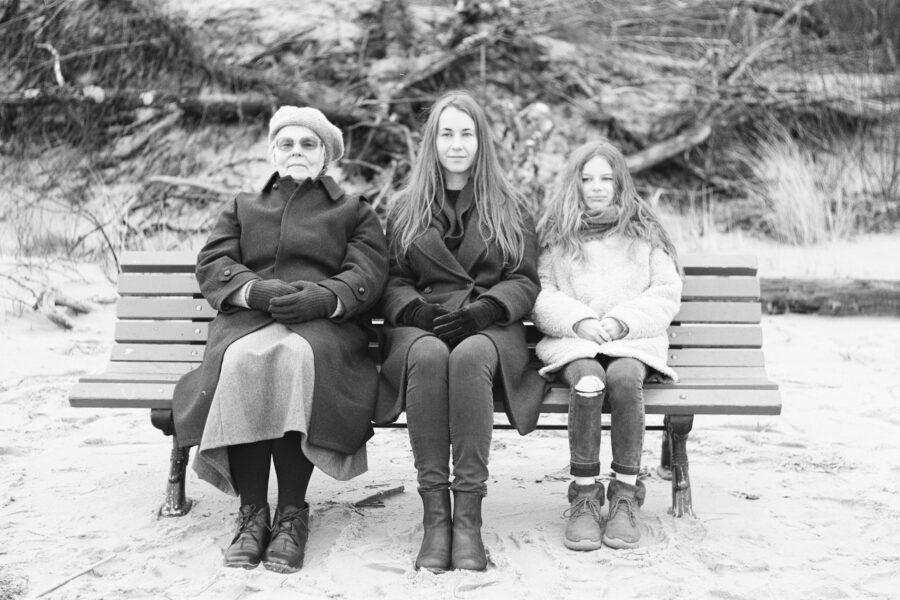Loneliness isn’t always quiet rooms and empty calendars.

Sometimes it slips into your life without fanfare. It looks like a full schedule. It wears a smile. It replies to messages. But there’s a kind of loneliness that doesn’t show itself in the ways we expect. You can feel it every day and not even realise what it is. It creeps into your thoughts, your habits, and your sense of connection without asking permission. And the longer it sticks around, the more normal it starts to feel, like just another part of being an adult. But it’s not. It’s something worth noticing.
You feel like you’re always performing.

You know how to say the right things, smile at the right time, and keep things ticking over. But behind that, it feels like you’re playing a version of yourself. Not lying, exactly—just not quite showing up as the full you. Maybe you’re only showing people the polished parts, or you’re editing out the parts you think won’t land. And when you do that for long enough, you forget what it even feels like to be real. You can be constantly social and still feel emotionally separate from it all.
You dread the end of the day when everything goes quiet.

There’s something about those final hours—the TV off, the lights low—that leaves you face-to-face with a feeling you’ve been dodging all day. You try to fill it with noise, screens, snacks, scrolling. You tell yourself you’re just decompressing. But deep down, it’s more than that. It’s the emptiness that surfaces when everything else falls away. And it reminds you that, despite all the doing and rushing and talking, you still feel alone in a way that has nothing to do with company.
You constantly replay conversations in your head.

Long after a conversation ends, it’s still going. You scan it for mistakes, awkward pauses, missed cues. Did you come off too intense? Did they really mean what they said? It’s not just about being anxious. It’s about not feeling secure in your place with people. That constant internal review often comes from not feeling truly known or understood. When you’re emotionally lonely, every word feels loaded because you’re looking for proof you belong.
You feel more like a support system than a person.

You’re the listener. The one who checks in, remembers birthdays, offers practical help. And while there’s value in being reliable, it can start to feel one-sided. You become the one people lean on, but there’s no one leaning back. Eventually, it starts to feel like you’re just a collection of helpful traits instead of a whole person. You don’t know who to call when it’s your turn to fall apart. And that can make you feel completely unseen.
You’re constantly second-guessing your place in people’s lives.

Even in longstanding friendships or stable relationships, you feel a little disposable. You wonder if you’re actually wanted or just tolerated. Maybe you find yourself hesitating before accepting an invite, unsure if they really meant it. That lack of security can be exhausting. It’s not always about low self-esteem, either. It’s about not having experienced the kind of relationships where you’re loved without question. And so you doubt it wherever you go.
You spend a lot of time in your head.

You replay old memories, imagine better versions of your day, construct entire conversations with people who might understand you. Your internal world becomes rich, comforting, even preferable to real life. But it’s not because you don’t want connection. It’s because the real world hasn’t offered the depth or understanding you crave. So you withdraw. And while your imagination keeps you company, it also keeps you removed from what could be real.
You start every message with “sorry for the long text.”

You apologise before you’ve even said anything real. You downplay your thoughts, pre-empt rejection, try to make yourself easier to deal with. You’re scared that saying too much, feeling too much, will push people away. So you shrink yourself. Not because anyone’s told you to, but because somewhere along the way, you learnt that your needs were inconvenient. And that belief can quietly keep you lonely, even in conversation.
You get irritable at things that shouldn’t matter that much.

You tell yourself you’re just being sensitive, but small things hit like a punch. A friend forgets to reply. Someone cancels plans. A colleague dismisses an idea. None of it is catastrophic, but it scratches at a wound. These aren’t just annoyances—they’re tiny confirmations of a deeper belief: that you’re on the outside of something. And when you’re emotionally malnourished, every small slight can feel like further proof you’re not valued.
You feel deeply connected to strangers online, but disconnected from people in real life.

You read a tweet or a post that makes you feel seen in a way no one in your actual life does. Maybe you follow someone whose vulnerability resonates deeply, and you think, “Finally, someone gets it.” But when you look around your real life, that level of connection is missing. Online spaces can feel like lifelines, but they can also throw into sharp relief how unseen you feel in your offline world.
You overcompensate with humour or small talk.

You’ve mastered the art of being entertaining. You keep conversations light, funny, fast-moving. People like you. You’re easy to be around. But when things turn serious, or when someone asks how you really are, you deflect. It’s not that you don’t want closeness. It’s that you’re scared of what might happen if someone sees the truth. So you keep things breezy, even when you’re longing for something more.
You feel like the only one without a safety net.

When life gets rough, you can hold it together, but you don’t know who would help you pick up the pieces if you didn’t. Everyone else seems to have their person, their group chat, their lifeline. You manage your own chaos, alone. That feeling of having no backup, even if it’s not true, can make everything feel heavier. You don’t need constant help. You just need to know someone would show up if you really needed them.
You hesitate before reaching out, every single time.

Even when you really need someone, you sit with your phone and think, “They’re probably busy,” or “I’ll be fine.” You play it down before anyone else has a chance to. And so you don’t send the message. That hesitation is its own form of loneliness. It says, “I don’t want to be a burden.” But the more you bottle things up, the further away people feel, even if they’re just a call away.
You feel like something’s missing, but you don’t know what.

You tick the boxes. You go to work, pay the bills, keep up with the routine. But it all feels flat. You keep thinking the next event, the next trip, the next milestone will fix it. But when it comes, the ache is still there. That sense of “not quite right” isn’t always a sign something’s wrong with your life. Sometimes it’s your heart saying, “I need more than this.” And usually, that ‘more’ is emotional connection.
You find yourself fantasising about being understood.

You imagine someone seeing through all the layers—the coping, the people-pleasing, the half-truths—and just getting it. You think about what it would feel like to be truly known, without having to explain yourself. These aren’t grand fantasies. They’re quiet, almost invisible longings. But they tell you a lot. They tell you that you’re carrying a loneliness you’ve learnt to live with. And just acknowledging that can start to shift something inside you.


